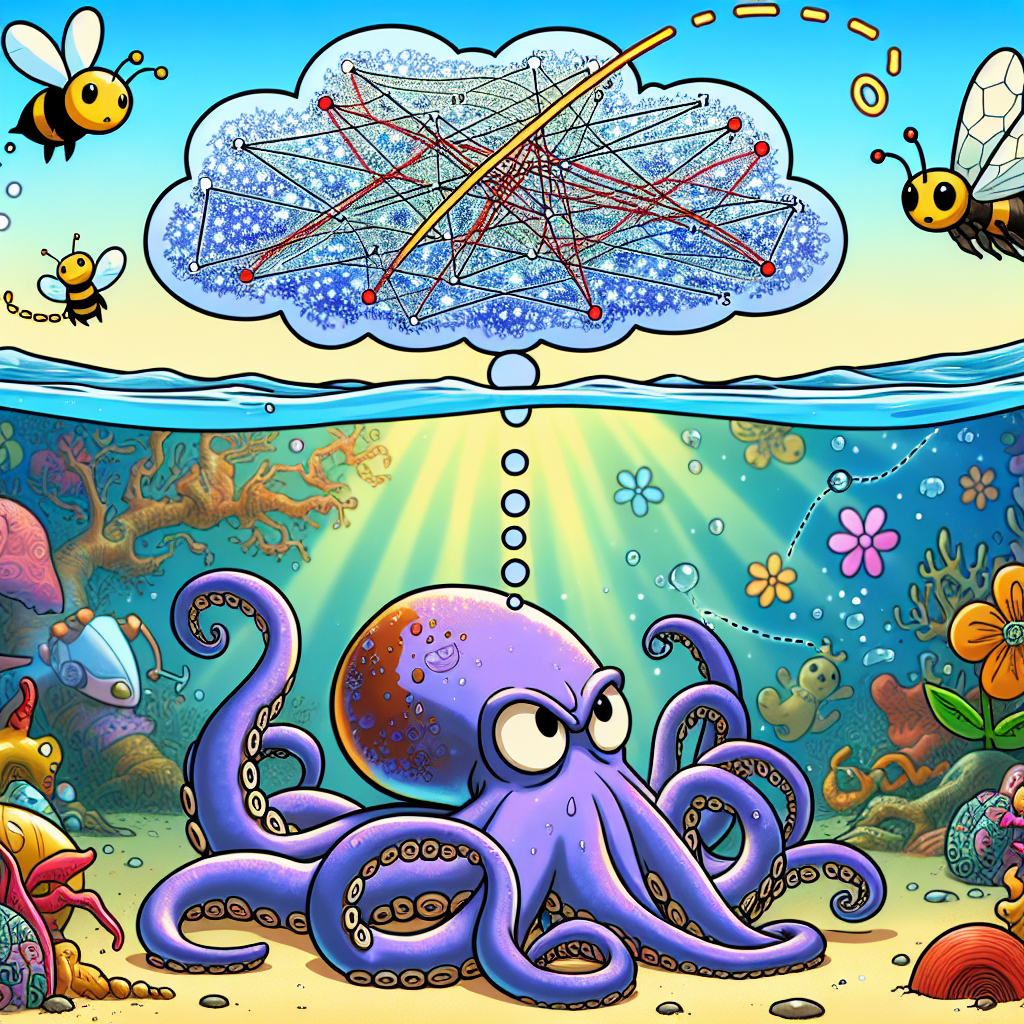
The Secret Lives of Animals: From Octopus Strategies to Bee Brains
Octopus Intelligence and Robotics
Recent studies have shed light on the intelligence of octopuses, showcasing their strategic use of arms for distinct functions. New research highlights how each arm of the octopus is not only flexible but also strategic, revealing behaviors such as camouflage and complex hunting techniques. This understanding of octopus arms could revolutionize the field of robotics and neuroscience.
Read more: Octopus Arm Coordination and Potential Innovations.
Implications for Robotics
Inspired by octopus movements, engineers are exploring how these creatures’ coordination and flexibility can influence the development of robotic systems. By mimicking the precision and adaptability of octopus arms, new robotic applications may achieve unprecedented levels of efficiency in various fields, including search-and-rescue operations.
Bee Brains and AI
On a different note, a groundbreaking study has uncovered fascinating details about bee brains and their potential to enhance AI technology. Researchers found that bees use flight patterns to improve brain signal accuracy, showing remarkable pattern recognition capabilities.
Discover more: Bees’ Flight Movements and AI Advancements.
Revolutionizing Computing
This discovery paves the way for developing AI systems that focus on efficiency rather than sheer computational power, mimicking the bees’ impressive ability to conserve energy while performing complex tasks. Such an approach could lead to more sustainable AI technologies and robotics.
Chimpanzees and Fermentation
In the animal kingdom, chimpanzees have been observed consuming fermented fruits, equivalent to a bottle of lager per day, suggesting natural resilience to alcohol. This behavior raises questions about the evolution of fermentation among primates.
Learn more: Chimps and Alcohol Consumption.
Understanding Fermentation
The study of fermentation in the natural diets of primates like chimpanzees helps researchers understand the potential health impacts and evolutionary adaptations. This knowledge can influence how we approach fermentation within our diets and alcohol consumption regulations in human populations.
Conclusion
From octopuses and bees to chimpanzees, the animal world continues to surprise us with its complex behaviors that blur the lines between instinct and learned strategies. These discoveries not only broaden our understanding of animal cognition but also offer innovative pathways for technological advancements.
Stay informed about the fascinating connections between animal intelligence and human technology: Reptiles and Cognition.
